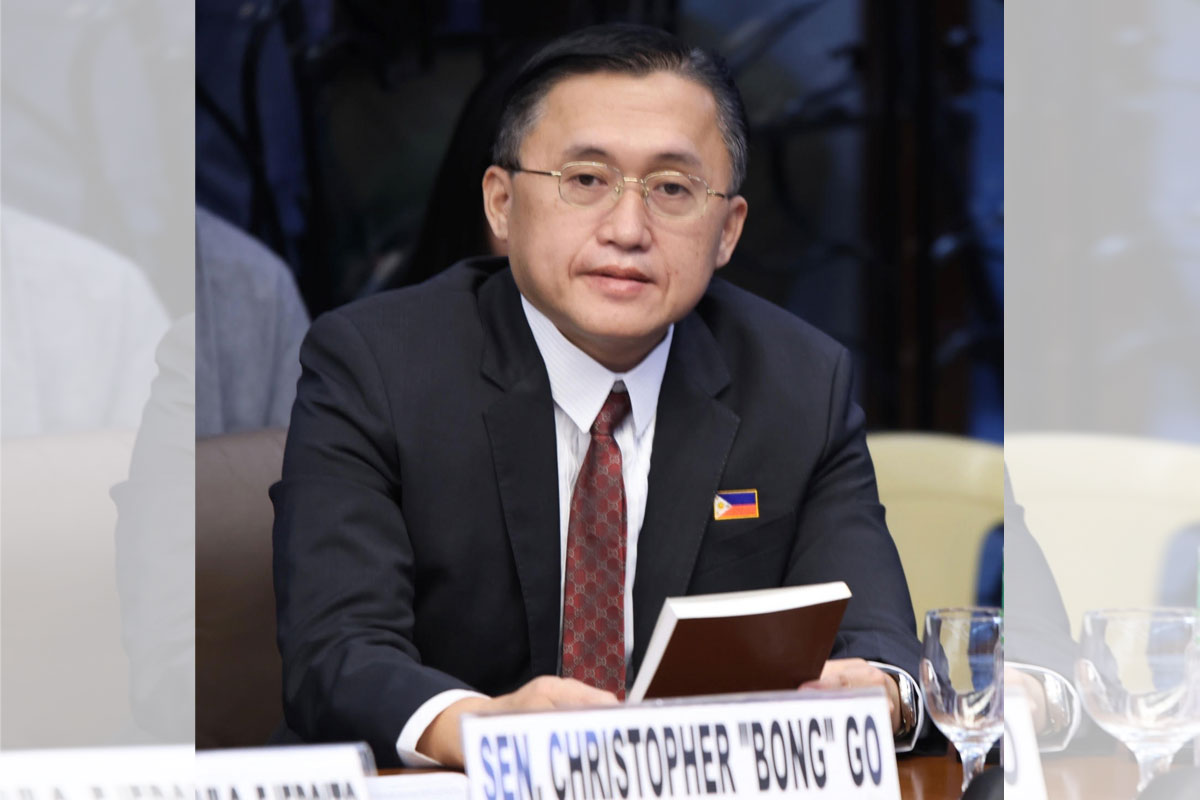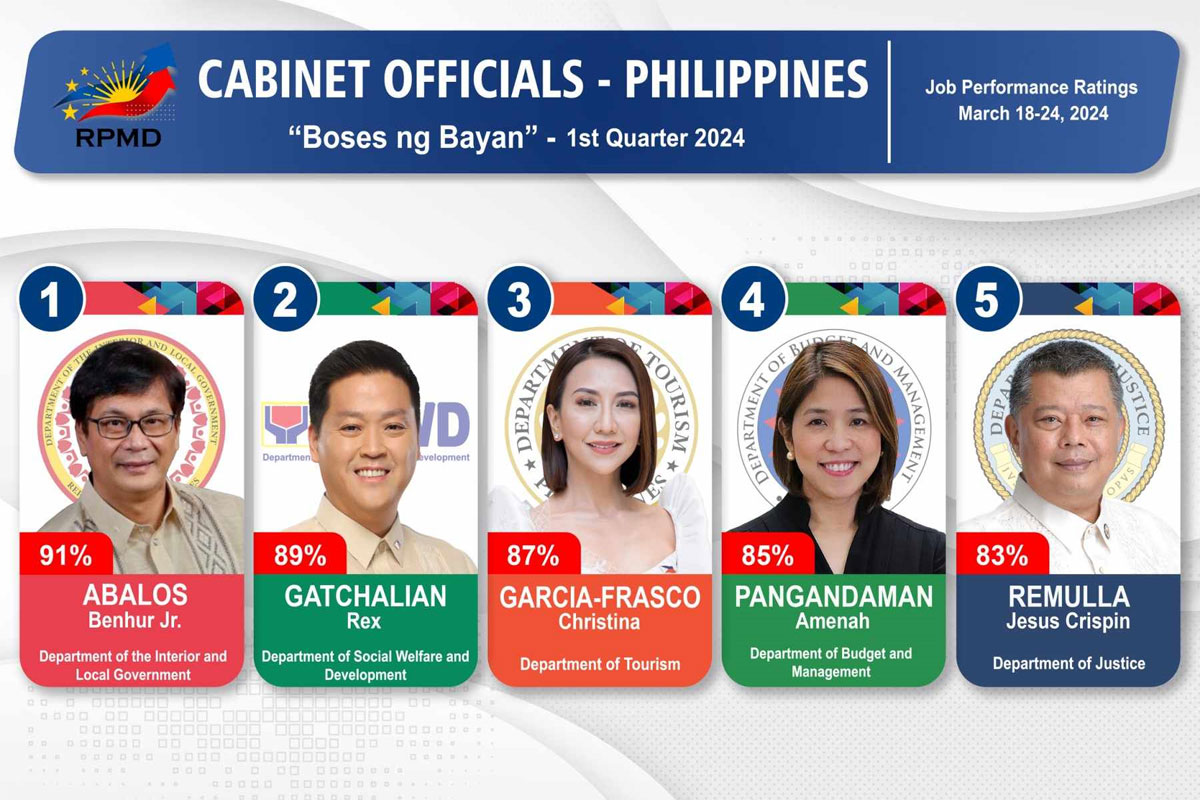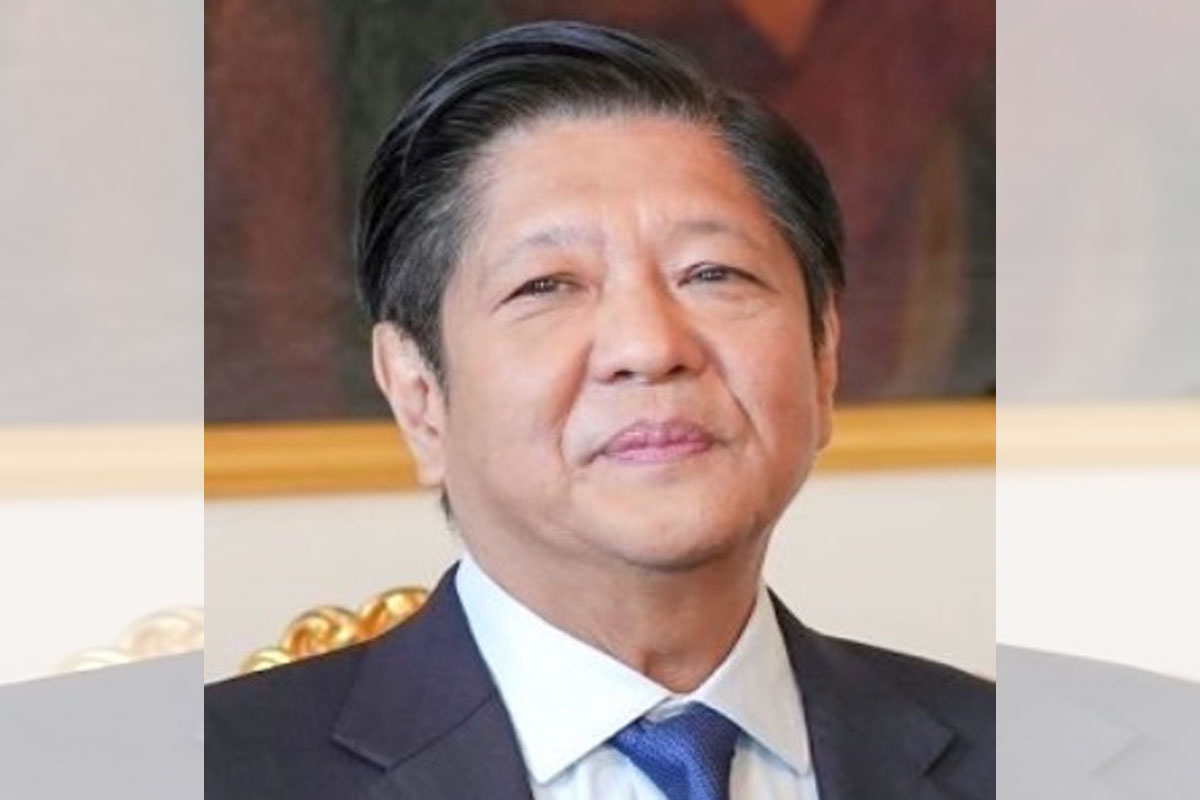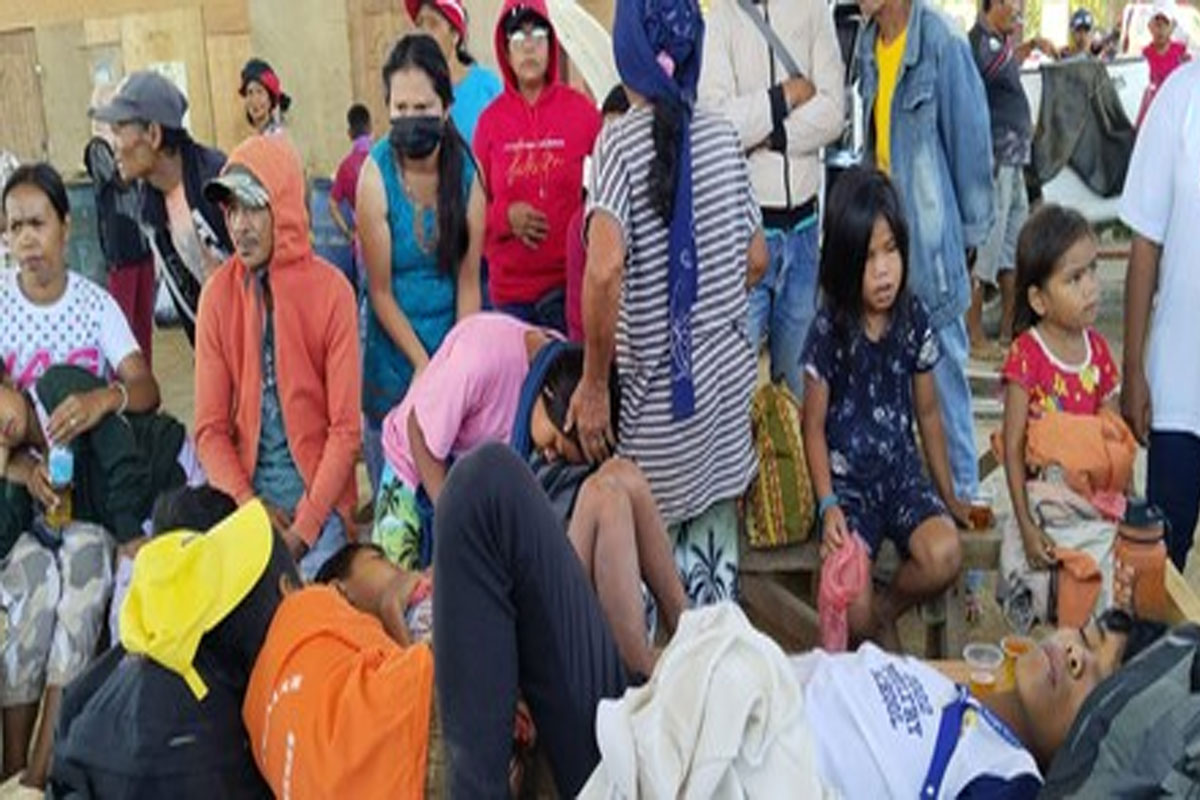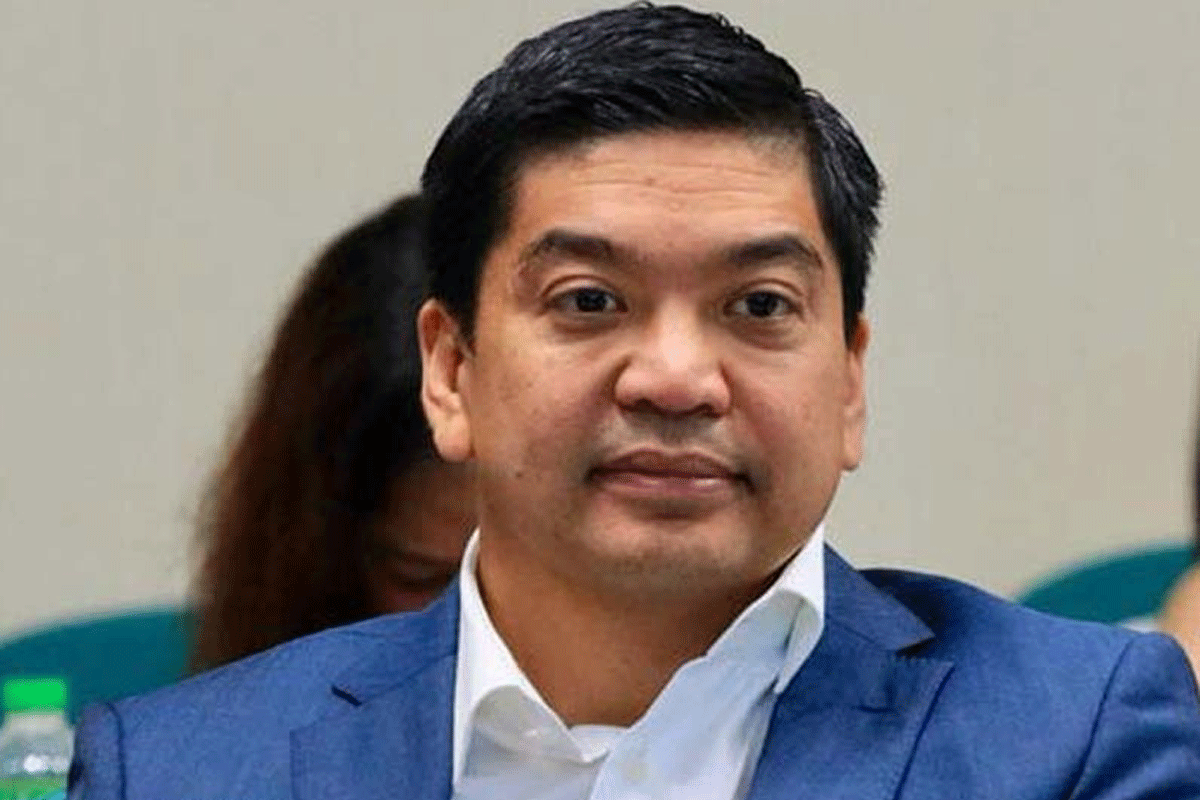
Villafuerte backs PBBM’s regional ‘FTI’ plan
A LAWMAKER has given the “thumbs up” to the grand plan by President Ferdinand “Bongbong” Marcos Jr. to prioritize the provision of quality infrastructure support to farmers as he proposed the establishment of regional food terminals or depots across the country in support of the chief executive’s agenda as concurrent agriculture secretary to shore up agricultural productivity and overhaul the supply and value chain.
“In sync with his agenda as concurrent agriculture secretary to properly map out the supply chain and make foodstuff more accessible to, and more affordable for, consumers, President BBM can take his cue from his late father, former President Ferdinand E. Marcos Sr., who had, during his presidency, launched programs to rev up the supply chain such as the establishment of the Food Terminal Inc. (FTI) in Taguig City for the warehousing, processing, and marketing of major farm produce,” Camarines Sur Representative LRay Villafuerte said.
Villafuerte, who similarly supports Mr. Marcos’ commitment to sustaining the unprecedented state infrastructure spending of his predecessor, former President Rodrigo Duterte, said, “President BBM could tweak this massive infra program in support of agricultural modernization by putting up food terminals across the country, with a focus on the main agricultural [products] in the respective regions.”
He recalled that the late President Marcos Sr. had built on his watch the FTI in Taguig City as a subsidiary of the National Food Authority (NFA), whose main operations included warehousing, food processing and marketing services, and trading of agricultural products.
Villafuerte suggested this regional FTI concept after President Marcos announced after his July 18 meeting with Department of Agriculture (DA) officials that the DA would henceforth prioritize building farm-to-market roads (FMRs) as part of his government’s desire to provide farmers with quality infrastructure support.
DA Undersecretary for consumer and political affairs Kristine Evangelista told reporters after the July 18 meeting at the Bureau of Soils and Water Management (BSWM) in Quezon City that President Marcos had instructed agriculture officials to “reconstruct the value chain” and to take account of “our supply sources and at the same time the demand requirements of our consumers, including institutional buyers, industrial users.”
Evangelista was quoted in the media as saying that one of the discussions was the “proper mapping out (of) the supply chain” and the “interventions” to help out the farmers. “In the production areas, we will pour all the assistance the department can to increase food production. With the demand side, we want to make the products reach the consumers at a good price, make them affordable for the consumers,” she added.
In a separate Facebook post, the Radio-TV Malacañang (RTVM) bared that the DA meeting convened by the President tackled the FMR network project and “a more efficient system of food mobilization across the country by capacitating the cooperatives and bringing in the FTI to support the distribution of agricultural products, especially to the vulnerable sectors of the community.
All these are geared towards accelerating the implementation of programs, activities, and projects (PAPs) for rice, corn, fisheries, vegetable, livestock, and poultry production.”
To dramatically boost farm productivity and raise farmers’ incomes, Villafuerte recommended to the President a government focus on value-added processing of agricultural products, with state-run food terminals taking the lead in all regions of the country.
“President BBM could put up at least one major food terminal or depot in every region, with production, processing, marketing, and trading focused on the major farm goods in each region,” he said.
“For instance, the proposed food terminal in Bicol could focus on coconut as this is the major crop in our region,” he said. “But instead of concentrating on just coconut oil, we in the region could focus on processing and packaging for sale here and abroad of such value-added goods as organic coconut milk, sparkling coconut water, skimmed coconut milk, dried coconut milk powder, toasted coconut flakes, desiccated or shredded coconut, coconut chips, and coconut fruit spread and cookies.
Villafuerte earlier backed the President’s decision to take on the position of agriculture secretary in a concurrent capacity, saying such a move sent the “crystal clear” message that the Marcos administration was giving “no. 1 priority” to agriculture amid a looming global food crunch beginning this year’s remaining half.
“We commend President BBM’s decision to head the DA as this sends the crystal clear message that his Administration is giving ‘no. 1 priority’ to agricultural modernization and food security, if not self-sufficiency,” said Villafuerte, a staunch advocate of higher farm productivity in the Congress.
Villafuerte said the President made “a wise decision in putting a premium on agriculture ahead of a looming global food crunch, given that the country’s nagging food supply woes arising from low rural productivity and unbridled population growth have been exacerbated by the pernicious impact on the world’s agricultural production of the lingering COVID-19 pandemic, rocketing oil prices and Russia’s invasion of Ukraine.”
He said that with Mr. Marcos’ “Bayan Bangon Muli” presidential campaign promise to uplift the lives of all Filipinos, it was only logical for the President to give paramount attention to agriculture, considering that there are 9.99 million people employed in the farm sector – according to 2018 data of the Philippine Statistics Authority (PSA) – or almost a tenth of all Filipinos.
“The incoming President cannot generate the tide that will lift all boats without including our farmers in the equation,” said Villafuerte, who has strongly supported the “Plant, Plant, Plant” farm productivity program of the previous Duterte administration.




